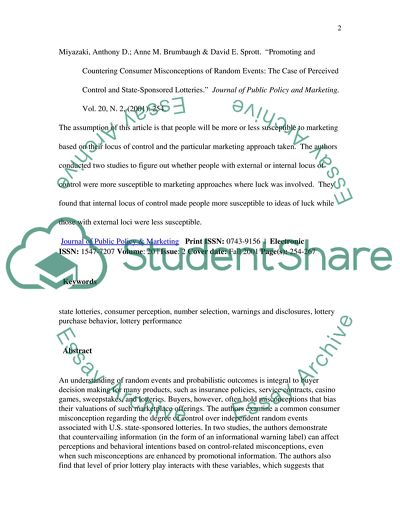Cite this document
(Psychology: Optimism, Pessimism, and Behaviour Control Annotated Bibliography Example | Topics and Well Written Essays - 2500 words, n.d.)
Psychology: Optimism, Pessimism, and Behaviour Control Annotated Bibliography Example | Topics and Well Written Essays - 2500 words. https://studentshare.org/psychology/1716415-psychology-an-annotated-bibliography
Psychology: Optimism, Pessimism, and Behaviour Control Annotated Bibliography Example | Topics and Well Written Essays - 2500 words. https://studentshare.org/psychology/1716415-psychology-an-annotated-bibliography
(Psychology: Optimism, Pessimism, and Behaviour Control Annotated Bibliography Example | Topics and Well Written Essays - 2500 Words)
Psychology: Optimism, Pessimism, and Behaviour Control Annotated Bibliography Example | Topics and Well Written Essays - 2500 Words. https://studentshare.org/psychology/1716415-psychology-an-annotated-bibliography.
Psychology: Optimism, Pessimism, and Behaviour Control Annotated Bibliography Example | Topics and Well Written Essays - 2500 Words. https://studentshare.org/psychology/1716415-psychology-an-annotated-bibliography.
“Psychology: Optimism, Pessimism, and Behaviour Control Annotated Bibliography Example | Topics and Well Written Essays - 2500 Words”. https://studentshare.org/psychology/1716415-psychology-an-annotated-bibliography.


